Home | Projects | Reflection
Dimensions of Cancer
Getting diagnosed with cancer is like
entering a foreign land with an unknown
language and no clear roadmap.
It takes some time to get your bearings.
-Bob Riter, Director for the Cancer
Resource Center of the Finger Lakes


The cancer community involves an enormous variety of people, institutions, and systems. Depending on your position, cancer looks very different. Our class will explore the cancer landscape in Tompkins County. We will write the stories of people and organizations that grapple with cancer in our local community. We will reflect on the multiple dimensions of cancer and how each perspective contributes to a deeper understanding of this disease.
Course Information

“Medicine begins with storytelling. Patients tell stories to describe illness; doctors tell stories to understand it. Science tells its own story to explain diseases.” –Siddhartha Mukherjee, The Emperor of All Maladies
Cancer is an intricate disease on all scales: at the microscopic level, malignant cells evolve within a complex biological landscape. At the human level, the diagnosis accompanies a cascade of physical, emotional, and financial stresses. On population and institutional levels, cancer constitutes a morbid epidemic, and enormous resources are exchanged in the relentless quest for effective treatments.
In the cancer discourse, the mutual exchange of knowledge, experiences, and ideas requires skillful communication. Through the language of cancer, you will craft cogent, felicitous arguments. You will practice strategies to improve your clarity, adaptivity, and intellectual force.
| Week | Tuesday | Thursday |
| 0 | — | COE Team & Leadership |
| 1 | Personal Statement Workshop | Cancer & Identity Workshop |
| 2 | Intergroup Dialogue Project | Proposal Workshop |
| 3 | Community Mapping | Q&A: Bob Riter, CRCFL |
| 4 | Feb Break | Johnson Museum Session |
| 5 | Ethics of Public Engagement | Thesis Workshop |
| 6 | Co-Curricular Activity | “Adventures in Writing” |
| 7 | Group Presentations | Library Research Session |
| 8 | Q&A: Deb Danko, CMC | Outlining Workshop |
| 9 | Q&A: Bob Weiss, Cornell | Support Group Session |
| — | Spring Break | Spring Break |
| 10 | Mid-Semester Assessment | Stefan Senders Workshop |
| 11 | CHESS Tour | Projects Workshop |
| 12 | Q&A: Chris Prakash, TX Oncology | Peer Review Workshop |
| 13 | Patient/Survivor Interviews | Reflection Workshop |
| 14 | Portfolio Presentations | — |
| How is cancer portrayed in public media (news, art, films, literature)? | ||||
| What are the patterns of inequality in cancer (risk, treatment, survival, impacts)? | ||||
| What are the costs of cancer (micro/macro economics, personal finance)? | ||||
| How has our understanding of cancer changed over time? What is the history of cancer? | ||||
| How can we reduce the prevalence of cancer? How can we increase public awareness and prevention? | ||||
| What kinds of research are happening at Cornell? How does the research system operate? | ||||
| In what ways is cancer the same or different in Ithaca versus another location (another town, another state, another country)? | ||||
| What are the social or environmental factors that have a positive or negative impact on cancer? | ||||
| What is the role of non-profit organizations in cancer? | ||||
| How is life different after cancer? | ||||
| What are the political dimensions of cancer? How do local, state, or federal governments influence cancer? | ||||
| What is the relationship between different dimensions of the cancer ecosystem? How are they connected, and how could these relationships be strengthened? | ||||
| How has an individual or group of individuals been affected by cancer? | ||||
| How can therapy be more accessible to cancer patients? |
|
Memoirs
|
When Breath Becomes Air | |||
| Being Mortal | ||||
| Memoir of a Debulked Woman | ||||
| The Cancer Journals | ||||
| Mom’s Cancer | ||||
| Living Downstream | ||||
|
Non-fiction
|
Emperor of All Maladies | |||
| Immortal Life of Henrietta Lacks | ||||
| Natural Obsessions | ||||
| Dr. Folkman’s War | ||||
| The Double Helix | ||||
| The Philadelphia Chromosome | ||||
| The Health Gap | ||||
| The Cancer Chronicles | ||||
| p53: The Gene that Cracked the Cancer Code | ||||
| Malignant: How Cancer Becomes Us | ||||
| Pandora’s DNA | ||||
| The Wandering Gene and the Indian Princess | ||||
| Teratologies: A Cultural Study of Cancer | ||||
|
Other Books
|
When Your Life is Touched by Cancer | |||
| The Secret History of the War on Cancer | ||||
| The Truth About Cancer | ||||
| Textbooks | The Biology of Cancer | |||
|
Organizations
& Websites
|
Cancer Resource Center of the Finger Lakes | |||
| National Cancer Institute | ||||
| American Cancer Society | ||||
| American Association for Cancer Research | ||||
| American Society for Clinical Oncology | ||||
| Center for Disease Control | ||||
| Cancer Atlas | ||||
|
Research Databases
& Academic Journals
|
Web of Science | |||
| PubMed | ||||
| Nature Reviews Cancer | ||||
| Nature Publishing Group | ||||
| Science Magazine | ||||
| BMJ Cancer | ||||
|
Public Media
& Magazines
|
Cure | |||
| Cancer Today | ||||
| LexisNexis | ||||
| ProQuest | ||||
|
Fiction
|
Cancer Ward | |||
| The Fault in our Stars | ||||
| My Sister’s Keeper | ||||
| The Middle Place | ||||
|
Films
|
Wit | |||
| 50/50 | ||||
| Me, Earle, and the Dying Girl | ||||
| The Emperor of All Maladies | ||||
|
Field Trips
|
Cancer Resource Center of the Finger Lakes | |||
| Cayuga Medical Center | ||||
| Guthry Clinic | ||||
| Tompkins County Board of Health | ||||
| Cornell Relay for Life | ||||
| Lab tour | ||||
|
Interview / Coffee
|
Cornell faculty, staff, students | |||
| Personal connections (family, friends, colleagues) | ||||
| Community members from government, business, healthcare, etc | ||||
|
Organizing
|
CRC film screening at Cinemapolis | |||
| Lead a Cornell student org activity | ||||
| Fundraisers or volunteer programs | ||||
| Plan an event or activity (e.g. a guest speaker or focus group) | ||||
|
Website or Wiki
|
Google map of cancer-related locations in Tompkins County | |||
| Digital exhibit from the Johnson Museum archives | ||||
| Online calendar of events for cancer-related activities | ||||
|
Informational
Materials
|
Fact sheet or info-graphic | |||
| Presentation or video related to your project | ||||
| Guidebook to cancer-related activities & organizations at Cornell/Ithaca | ||||
|
Public
Communications
|
Letter to an elected official | |||
| Shutterfly album or newsletter (e.g. photo-album: “what cancer patients want scientists to know about cancer”) | ||||
| Article / letter to the editor for the Daily Sun or Ithaca Voice | ||||
| Article for a cancer journal or magazine, such as Cancer Today, Cure, or scientific publication | ||||
| Podcast | ||||
|
Ethnography
|
Career paths toward cancer-related jobs | |||
| Demographic / community mapping exercise | ||||
| Biographies or public narratives of individuals or institutions | ||||
| Essay | Expository report on the topic that you investigated | |||
